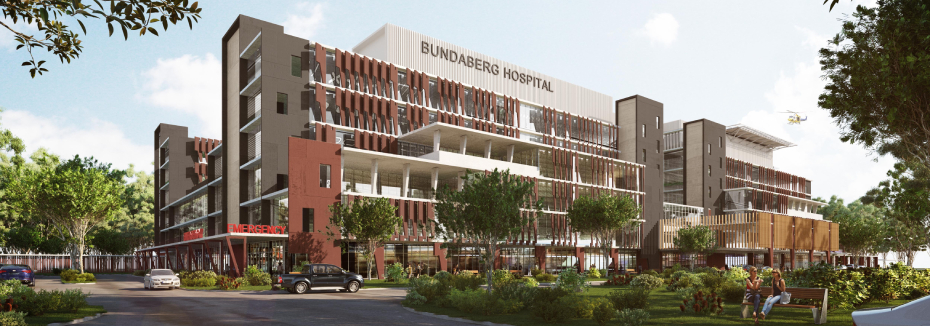$1.6bn contract awarded for the delivery of METRONET High-Capacity Signalling

Western Australia’s METRONET High-Capacity Signalling (HCS) project has reached a major milestone with the awarding of a 10-year $1.6 billion contract to AD Alliance.
AD Alliance – comprised of Alstom Transport Australia Pty Ltd and DT Infrastructure Pty Ltd – will undertake the design, supply and construction of Perth’s High-Capacity Signalling (HCS) project that will replace and upgrade the existing signalling and train control system on Perth’s rail network.
“Western Australia is experiencing a rail renaissance with the recent first passenger service of the Alstom’s C-series train, built locally in Bellevue. Now comes the investment in the world’s best signalling technology. Clearly, the West Australian Government require the best for the people of Perth. It is our privilege to deliver this, backed by our global expertise and local knowhow, for Western Australia, continuing our long history of deep partnership with the State,” Alstom Australia and New Zealand Managing Director Pascal Dupond said.
“With several METRONET projects nearing completion, Perth’s upgraded rail network means residents and visitors are more connected than ever before. The High-Capacity Signalling program will ensure that this capability is fully utilised, running more trains more often. We’re delighted to be working with Alstom to deliver this remarkable project, drawing on our extensive experience optimising and delivering improvements to passenger rail networks across Australia,” DT Infrastructure Chief Executive Officer Darren Crichton said.
Works will include:
- Upgrading signalling aling the total length of the Transperth train network (about 500 kilometres)
- Installing more than 7,000 transponders enabling precise train location
- Introducing new in0cab signalling equipment for 125 trains including the Prospector and Australind regional trains
- Improving passenger information on more than 600 displays on 89 stations across the network
- Installing more than 250 kilometres of electrical conduit
The METRONET High-Capacity Signalling project is expected to create 230 direct jobs and support 750 jobs overall, providing significant benefits to local workers.
“As our public transport system expands, it’s vital we ensure our network remains fit-for-purpose and suitable for our growing population.
“Our vision for the future of public transport in Perth is a network that doesn’t require timetabling, where commuters can turn up to their train station and know there will be a service running every few minutes or so.
“This is a major and necessary investment that will help us to achieve that and set up our rail network for generations to come, allowing trains to run more often and improving reliability and safety.
“Of course, a project of this size also presents major opportunities and benefits for local employment, with 750 jobs set to be supported through the HCS, including the creation of 230 new ones – another big win,” WA Transport Minister Rita Saffioti said.
The HCS control technology will be housed at the new state-of-the-art Public Transport Operations Control Centre (PTOCC), which is the central point to ensure smooth and safe public transport operations, including incident management.
Once completed, this METRONET project will allow more trains to run more often and ultimately increase network capacity by 40 per cent.
“New jobs, local investment, and better public transport – that’s what Labor is all about.
“I am thrilled about what this means for local people – a smoother and reliable way to get around our beautiful city.
“The Albanese Labor Government is getting on with the job and creating more opportunities in Western Australia and building a reliable and efficient transport system for generations to come,” Federal Member for Swan Zaneta Mascarenhas said.
The HCS project is jointly funded by the Australian and Western Australian Governments, and it will be delivered in stages over the next 10 years to minimise disruption to train services.
The Australian Government has committed $300 million to deliver the first stage of the HCS project.
“It is vital to not only get METRONET built, but also to invest in the technology and infrastructure upgrades needed to ensure the network runs safely, efficiently and reliably into the future.
“This project is part of the Australian Government’s $4.87 billion investment into METRONET, which includes $300 million in this year’s Federal Budget to deliver the first stage of automatic train control infrastructure,” Federal Infrastructure, Transport, Regional Development and Local Government Minister Catherine King said.
Source: Government of Western Australia – Media Statements; METRONET; Infrastructure Magazine; Alstom

Related Articles

$1.2bn new Bundaberg Hospital nears construction, supporting 2880 jobs
The Queensland Government continues its streak in delivering better healthcare services and jobs across the State with the announcement of CPB Contractors as managing contractor for the $1.2 billion new Bundaberg Hospital.

Works commence on Albemarle's $1bn Kemerton lithium plant in WA
Works have commenced on Albemarle Corporation’s $1 billion lithium plant development in the Kemerton Strategic Industrial Area (SIA) - located approximately 17 kilometres north east of Bunbury - in Western Australia.

144MW wind farm project in TAS to support 150 construction jobs
Early works have commenced on the 144MW Cattle Hill Wind Project in Tasmania, with Goldwind Australia initiating site access construction works at the Central Highlands site.
Get the latest project news
- updates on Australia's pipeline of state and federal projects
- fresh contract awards from major contractors and builders
If you're looking to contact us about other matters, please contact us.


